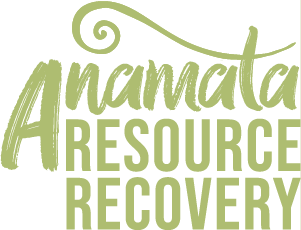Living Lightly Featuring Kurt Carter & Saskia Koerner
Introducing Saskia & Kurt. They reside in Okiwi and have thrived by living tiny, lightly and happily.
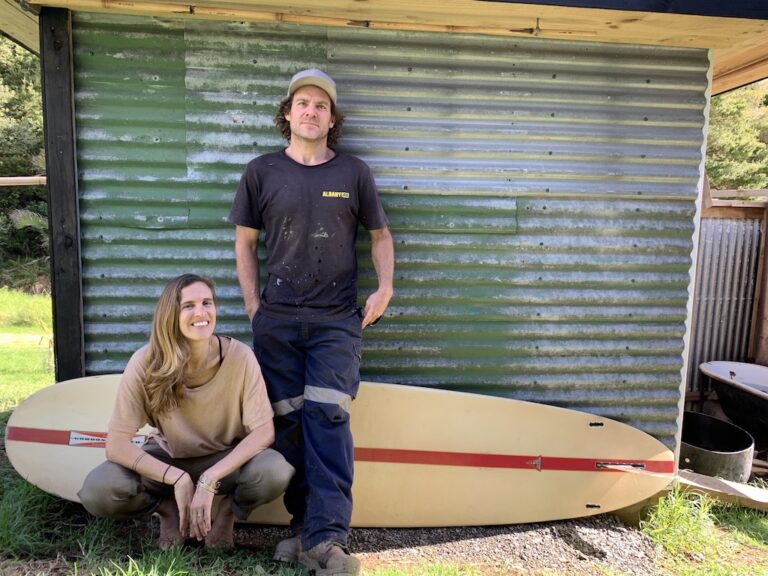
How long have you lived on Aotea? March 17, 2020
Are you originally from the island? If not, how did you end up here?
No, we came through a good friend of ours and Okiwi Passion. I (Kurt) came for the first time in 2017. Then I came in 2018 and did a little longer stint, and in 2019 I came back to work. In 2020 we came for a 3 week family holiday from Bali and got stuck here in lockdown.
When and how did your zero / minimum waste journey begin?
Kurt – The horrific interaction of working on western Australia mines, seeing trash in plastic bag after plastic bag, it frightened me to see that more than anything I’d seen before. I’d never seen such waste on a daily basis, daily meals in single-use plastic times thousands of people per day. I started to become aware of where humanity was going, becoming aware of blind consumption, even in this financially capable area.
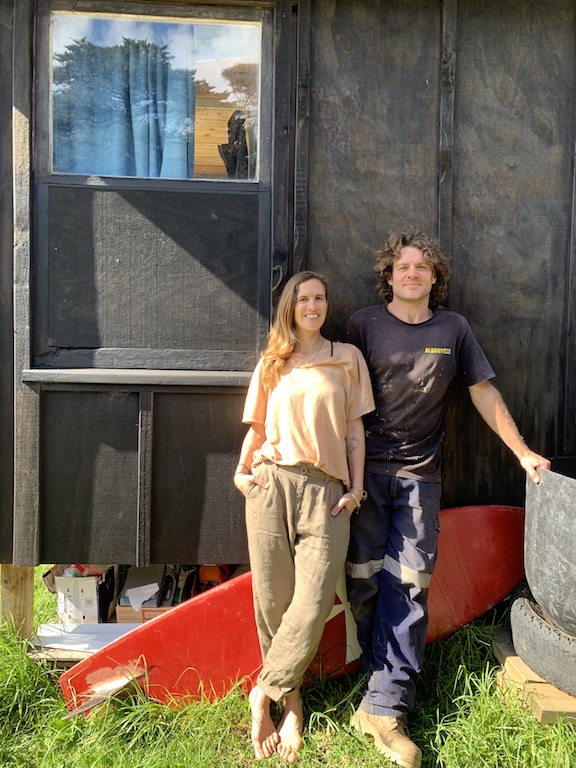
How long have you lived on Aotea? March 17, 2020
Are you originally from the island? If not, how did you end up here?
No, we came through a good friend of ours and Okiwi Passion. I (Kurt) came for the first time in 2017. Then I came in 2018 and did a little longer stint, and in 2019 I came back to work. In 2020 we came for a 3 week family holiday from Bali and got stuck here in lockdown.
When and how did your zero / minimum waste journey begin?
Kurt – The horrific interaction of working on western Australia mines, seeing trash in plastic bag after plastic bag, it frightened me to see that more than anything I’d seen before. I’d never seen such waste on a daily basis, daily meals in single-use plastic times thousands of people per day. I started to become aware of where humanity was going, becoming aware of blind consumption, even in this financially capable area.
So then that encouraged me to look within myself and think “if you find that to be so appalling and devastating, then maybe I need to turn around and look at my actions”. In every step and choice I need to be the one who says “I did my best and was fully conscious of my choice and not being part of the destruction”
(Both) We used to live in Bali and seeing all the trash in the water was devastating. To see the constant interaction of non-management of waste and the environment.
Saskia – There have been waves of it throughout my life, growing up in the 80s coming from a German background in South Africa, it was very normal to separate trash. Germany has separated trash forever, as long as I could remember. SA was a bit slow to cotton on. The real penny dropped for me being more conscious was when I was about 22. I was doing my own dye techniques for my clothing label and dying it myself and seeing the chemicals and wondering “where does this actually go?” You get taught this, but finally reflecting on my actions. I didn’t come up with a solution right then or there, but that’s where the journey began. Questioning more and being conscious and where stuff goes.
So, with developing our lifestyle here over time, everything was a trip over here on the ferry with a full car. There was nothing on the land, we built everything from scratch from recycled materials. Starting from scratch allows us to make conscious choices at every turn, we are learning everyday.
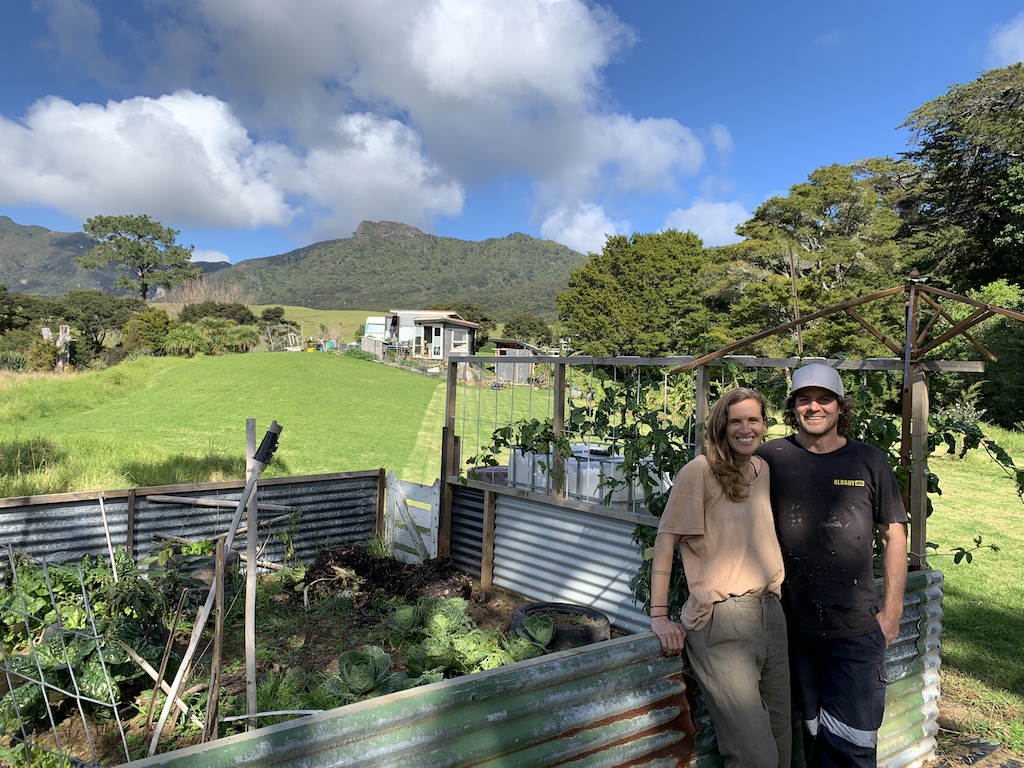
Tell us about some of the things you do that help to reduce waste, resource consumption, and sustainable living.
We grow gardens, many of them. Plant lots of fruit trees, shop in bulk, try to shop consciously and look at packaging. We choose sustainable packaging where possible, glass jars over tetra pak etc. We also reuse a lot of glass packaging and have big compost heaps. We love that we have a soft plastic recycling scheme on the island now.
We separate all elements of our trash / recycling, try to use up-cycled materials, utilise instead of trashing things. Before we throw something out we ask ourselves “where is this going to end up?”
Tell us about some of the things you do that help to reduce waste, resource consumption, and sustainable living.
We grow gardens, many of them. Plant lots of fruit trees, shop in bulk, try to shop consciously and look at packaging. We choose sustainable packaging where possible, glass jars over tetra pak etc. We also reuse a lot of glass packaging and have big compost heaps. We love that we have a soft plastic recycling scheme on the island now.
We separate all elements of our trash / recycling, try to use up-cycled materials, utilise instead of trashing things. Before we throw something out we ask ourselves “where is this going to end up?”
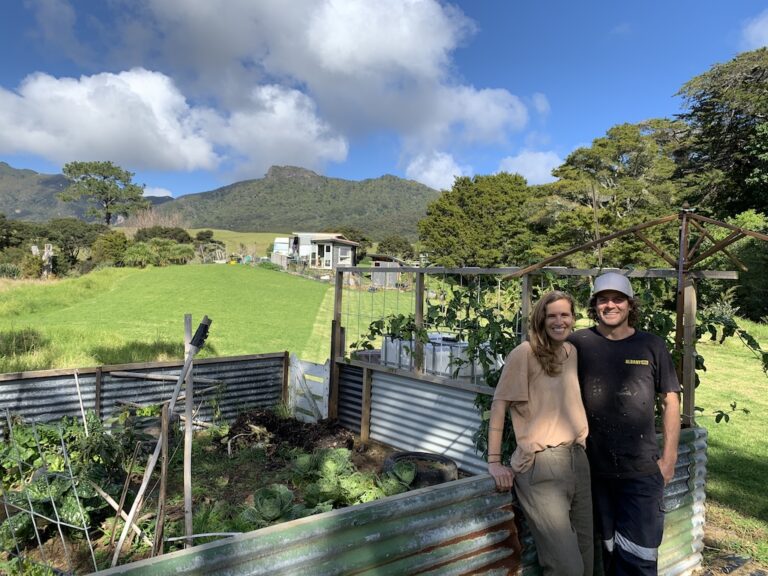
Kurt – In carpentry, I took away the need of buying new things when I could find older and recycled stuff that could suffice for the same project. So, upcycle where you can! I recently built a building with 50% recycled materials, which cost me more in time, but it’s a better outcome.
In 18 months our shopping has changed significantly. We are always learning, it’s a constant journey of learning and loving the process. We are not saying we are perfect, it’s definitely a challenge.
What motivates you about this lifestyle? Why is this important for you, your family and your home – specifically?
Because we are just visitors on this planet, we don’t own it. We should treat it with love and respect, we should try and fix these massive problems we have created. This earth is going to commend me more for the energy I put back into it than the money. There is more value in energy than money.
If you put good energy back in, piece everything back together, soils, ecologically friendly areas (orchards, nurseries) they are going to give back to us all we need and you’ll have more than enough to share. I feel like I will have won in life if I reach a place where we can all share everything.
Our observations motivate us to not be part of the consumerism and linear rubbish system, as much as possible.

Food waste is a large contributor to our wastecycle island and country-wide. What is your policy / best practice to minimize food waste? (Including tips for grocery shopping esp. online and how to avoid so much packaging while shopping local, composting, using what you have,etc.)
Grow your own food. We are in the learning phase, in flipping over from mainstream reliance or local Indonesian grocer to being able to sustainably feed ourselves on up to 60% of our meals.

Food waste is a large contributor to our wastecycle island and country-wide. What is your policy / best practice to minimize food waste? (Including tips for grocery shopping esp. online and how to avoid so much packaging while shopping local, composting, using what you have,etc.)
Grow your own food. We are in the learning phase, in flipping over from mainstream reliance or local Indonesian grocer to being able to sustainably feed ourselves on up to 60% of our meals.
We compost whatever we can, and don’t eat dairy or meat. When we do buy or are forced to buy our winter fruit, we refrain from buying any pre-packed stuff, only loose items. Our Mylk comes in glass jars of concentrate, is plant-based and makes about 17 litres.
We sprout kumara, save seeds, ferment heaps of veggies, make sauces, jams, have a pumpkin stash, grow potatoes, forage for wild berries and nuts, and bake all our own bread.
What are some of your best min waste / up-cycling tips?
Compost for starters. Organic, non-animal waste, compost. Just at least to connect you to your food source on many levels. Up-cycling, using recycled materials, especially for building.
Save your seeds! Start growing, even little things. You can even have pot gardens if you don’t have a garden, just connect yourself with your food source.
Just to start questioning everything you use in your life, where does it come from? Where is it going to go when I am done with it? Is there a better option? Biggest question, do I need it? Start thinking and making different choices.
What are you most excited for in regards to the future of min waste on the island?
As they have in Raglan, to see the food waste/compost bins come into place. And no single-use coffee cups!
To not only be off grid, but to be also a regenerative and fully sustainable community living together.
How do you see the influx of people moving here/visiting? How do we get them up to speed and participating?
Education from arrival. Have it be part of the island’s identity, part of its DNA, to be advocates for sustainable and regenerative lifestyle. So it’s the reason people want to come here, to come and learn and experience and take ideas home. All visitors follow a “Bring what you need and not what you want” mindset.
Give them key points, “the island works like this” and be the example and include them, don’t point fingers, we want you to join us – be inclusive. Become aware. Make it easy for them to be a part of it. Make it fun. Showcase critical items to watch and ongoing issues.
How can people start to incorporate zero / min waste attitudes and habits into their daily life?
Easy! Start with one garden, then build three. If you can’t maintain them, maybe you have neighbors to share with. If you’re coming for a visit, support the locals, try not to disrupt the local ecosystem, but support it.
Use the bulk bins at the shops, be sustainably minded.
What do you hope to see on Aotea over the next 5-10 years?
Lots more fruit trees around! Designated areas for natives and orchards. Seeing a lot more regeneration. Community projects. I wish there was more government support and it could be more affordable for people to live a more sustainable lifestyle.
Hopefully much less waste, switched onto organic and sustainable. Better packaging solutions, building solutions, and working as a team to reduce.

